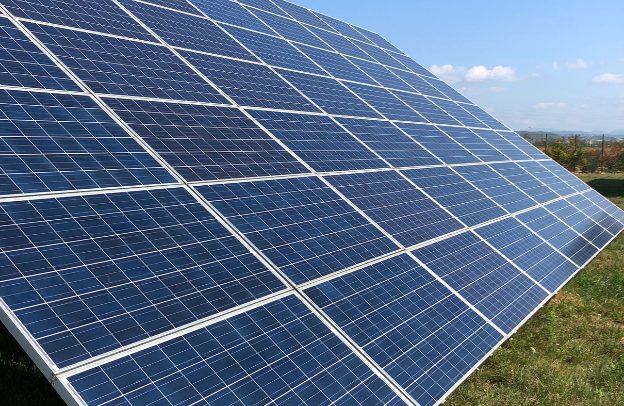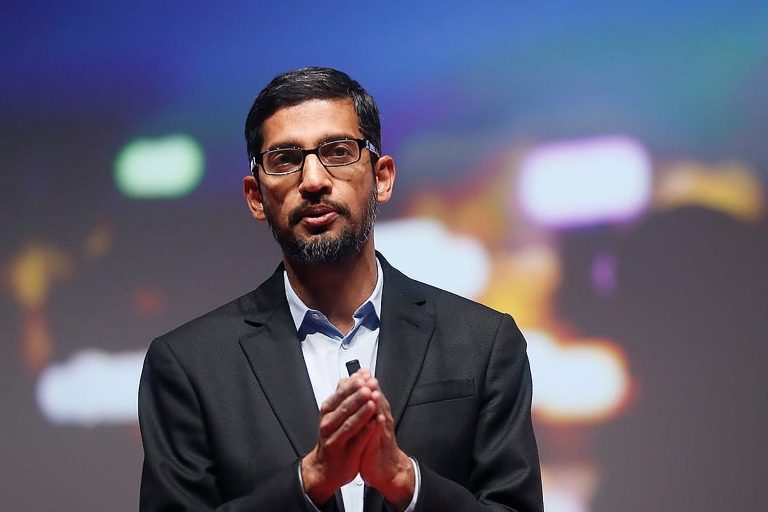Harnessing the Power of AI to Illuminate Africa: A New Dawn in Solar Energy

Africa, a continent known for its vast landscapes and abundant sunlight, is poised to become a global leader in renewable energy. As power systems become increasingly complex and the demand for electricity continues to rise, the integration of solar energy into the grid presents a promising solution.
Want to learn more about storytelling? Start by downloading the first chapter of The Storytelling Mastery.
However, the variability of sunlight and the challenges of managing decentralized energy sources require innovative approaches. In this new era, the convergence of artificial intelligence (AI) and solar energy is turning out to be a game-changer, offering unique opportunities to improve efficiency, reliability, and sustainability.
The Rise of Solar Energy in Africa
Africa is blessed with an abundance of sunlight, making it an ideal candidate for solar energy generation. According to the International Renewable Energy Agency (IRENA), the continent receives an average of 2,000 kilowatt-hours (kWh) of solar radiation per square meter each year, far surpassing the energy needs of its inhabitants.
Despite this potential, access to reliable electricity remains a challenge for many African communities. The World Bank estimates that over 600 million people in sub-Saharan Africa lack access to electricity, hindering economic development and social progress.
Nigeria, for example, has remained in darkness for decades and despite years of colossal investment by the government, the people of Nigeria still see 24-hour power as only a mere dream.
In a Bloomberg article, Nigeria Takes Tentative Steps Toward Tackling its Energy Crisis, it was stated as follows: “Chronic electricity shortages have been a perennial problem in Nigeria, which has Africa’s biggest economy and population.
The country has a woeful lack of generating capacity and part of the energy that is produced goes to waste because it can’t be distributed through the dilapidated grid.”
In recent years, however, there has been a significant shift towards renewable energy adoption across the continent. According to the Africa Energy Outlook 2021 report by the International Energy Agency (IEA), solar photovoltaic (PV) capacity in Africa grew by 44% in 2020, reaching a total of 6.6 gigawatts (GW).
See also Address on Energy Security at Andrews Air Force Base
Countries like South Africa, Egypt, and Morocco have emerged as leaders in solar energy deployment, leveraging their abundant sunlight resources to drive economic growth and reduce carbon emissions.
Why Is Solar Energy A Better Option In Africa?
According to the International Monetary Fund, Africa has more promising large-scale expansion of renewable electricity generation in solar and wind power potential, “whose prices are now in the same range as those of fossil fuels.”
The article added that “conditions for solar energy are excellent in Africa, where sunshine is not only abundant but also much more reliable than elsewhere.” Now here are three key reasons why solar energy solution is a better option in Africa:
Abundant Solar Resources
Africa is blessed with an abundance of sunlight throughout the year. The continent receives some of the highest solar irradiance levels globally, making it an ideal location for solar energy generation.
With vast stretches of land bathed in sunlight, Africa has the potential to harness solar energy on a massive scale. This abundant solar resource provides a reliable and sustainable source of electricity, particularly in regions with limited access to traditional grid infrastructure.
Decentralized Energy Generation
Solar energy offers the advantage of decentralized energy generation, allowing communities in remote or off-grid areas to access electricity independently of centralized power systems.
In many parts of Africa, especially rural areas, traditional grid infrastructure is lacking or unreliable. Solar energy systems, such as off-grid solar panels or mini-grids, can provide a cost-effective and scalable solution to meet the energy needs of these underserved communities.
By decentralizing energy generation, solar power can empower communities to become self-sufficient and resilient to energy shocks.
Environmental Sustainability
Solar energy is a clean and renewable source of electricity that produces zero greenhouse gas emissions during operation. In contrast to fossil fuels, which contribute to air pollution and climate change, solar power helps reduce carbon emissions and mitigate environmental degradation.
Given Africa’s vulnerability to the impacts of climate change, such as droughts, heatwaves, and extreme weather events, transitioning to solar energy is essential for building climate resilience and protecting the continent’s natural ecosystems.
By embracing solar energy, African countries can reduce their dependence on fossil fuels, mitigate environmental risks, and contribute to global efforts to combat climate change.
Overall, solar energy offers a compelling solution to Africa’s energy challenges, leveraging abundant solar resources, decentralized generation, and environmental sustainability to provide clean, reliable, and affordable electricity for all.
The Challenges of Solar Energy Integration
While the potential of solar energy in Africa is undeniable, its integration into existing power systems presents several challenges.
Unlike conventional power sources, such as coal or natural gas, solar energy production is inherently variable, depending on factors such as weather conditions and time of day.
This variability can pose challenges for grid operators tasked with maintaining a stable and reliable supply of electricity.
Furthermore, the decentralized nature of solar energy generation, with installations ranging from small-scale rooftop solar panels to utility-scale solar farms, adds complexity to grid management.
Traditional grid infrastructure, designed for centralized power generation and one-way energy flows, must adapt to accommodate bidirectional energy flows and distributed energy resources.
The Role of Artificial Intelligence in Solar Energy
There is no doubt that this is the age of artificial intelligence (AI), a transformative technology that promises to revolutionize sectors, including energy with more reliable power generation and distribution options.
AI algorithms, powered by advanced machine learning techniques, can analyze vast amounts of data in real time, enabling grid operators to forecast energy supply and demand with record accuracy.
By leveraging AI, solar energy producers can optimize the efficiency of their installations, maximize energy output, and minimize operational costs.
One of the most promising applications of AI in solar energy is predictive analytics. By analyzing historical weather data, solar irradiance patterns, and system performance metrics, AI algorithms can better forecast solar energy generation with remarkable precision.
See also Harnessing Artificial Intelligence for Advancement in Africa: An Expert’s Insight
This will enable grid operators to anticipate fluctuations in solar output and proactively adjust energy dispatch schedules to maintain grid stability.
Case Studies in AI-Powered Solar Energy
The transformative potential of AI in solar energy is already being realized in Africa and beyond. In South Africa, the utility company Eskom has partnered with AI technology firms to deploy predictive maintenance solutions for its solar power plants.
By analyzing data from sensors embedded in solar panels, AI algorithms can identify potential equipment failures before they occur, enabling proactive maintenance and minimizing downtime.
Similarly, in Egypt, the New and Renewable Energy Authority (NREA) has implemented AI-based forecasting models to optimize the operation of its solar farms.
By integrating weather forecasts, satellite imagery, and historical data, NREA can predict solar irradiance levels with high accuracy, enabling more efficient energy generation and grid management.
The Future of Solar Energy in Africa
As the adoption of solar energy continues to accelerate across Africa, the role of artificial intelligence will become increasingly vital. By harnessing the power of AI, African countries can unlock the full potential of their solar resources, driving economic growth, and sustainable development.
However, realizing this vision will require collaboration between governments, utilities, technology firms, and other stakeholders to overcome technical, regulatory, and financial barriers.
In conclusion, the convergence of artificial intelligence and solar energy represents a new dawn for Africa, offering the promise of clean, reliable, and affordable electricity for all.
So, join those who are embracing innovation and investing in renewable energy infrastructure. African nations surely can lead the transition towards a more sustainable and prosperous future, leveraging the power of AI for solar energy.
Want to learn more about storytelling? Start by downloading the first chapter of The Storytelling Mastery.






